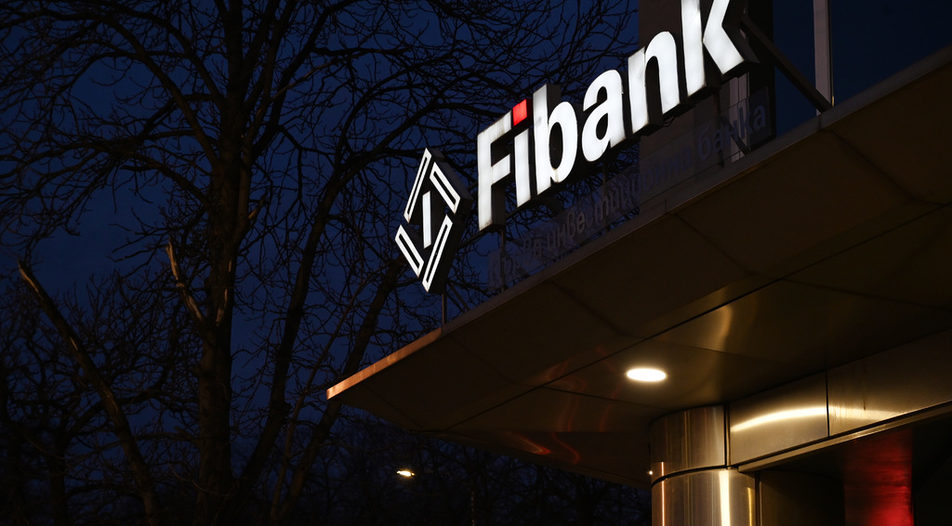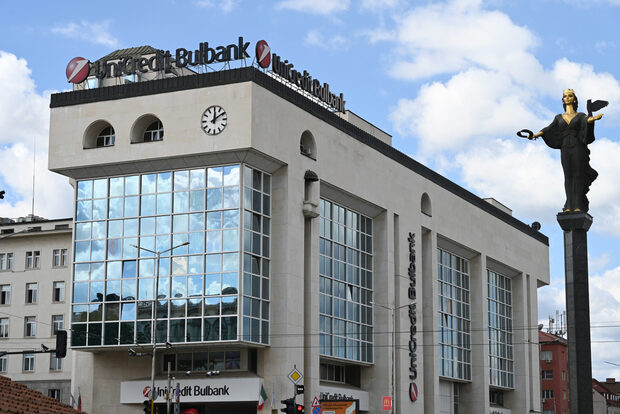Fibank intends to raise a record 200 million levs in fresh capital from investors on the Bulgarian Stock Exchange. The news was announced on 20 December along with measures aimed to cover the capital shortfall of 263 million levs in Fibank discovered by the European Central Bank in its comprehensive assessment of six Bulgarian lenders last summer.
As soon as ECB published the results, Fibank stated that it had already secured almost half of the amount through current profit, accrued provisions, repaid loans and additional collateral for exposures. However, it seems that these measures were insufficient and Fibank has been working on its balance sheet for months now in order to comply with the ECB-imposed corrections.
Now, the bank will have to raise fresh capital as well. According to sources of Capital newspaper, when informally reconciling the plans of the two Bulgarian banks identified with a capital shortfall - Fibank and Investbank, the ECB insisted on seeing real increases in the capital in both credit institutions. A few days before Fibank's announcement of the planned capital increase, Investbank said that it intends to go public and increase capital.
The parameters
Fibank, a public company since 2007, doesn't need to go through the process of listing on the stock exchange. However, a capital increase would require writing a prospectus and getting approval from the Financial Supervision Commission.
Fibank intends to raise its capital to 150 million levs from 110 million levs by issuing 40 million new shares of one lev in face value each of which will be offered at a price of five levs. Thus the bank will be able to attract a maximum of 200 million levs in fresh capital. However, even if the credit institution manages to sell only 4 million new shares at that price, which corresponds to 20 million levs in fresh capital, the increase would still be considered successful, according to the announcement.
Weighing options
Raising 200 million levs at 5 levs per share seems a daunting task for Fibank, whose shares were traded below 3 levs apiece before the announcement. After informing of plans to raise capital, the bank saw its share price jump to 3.60 levs. Subsequently, the price decreased to levels around 3.40 - 3.45 levs - well below the value laid down in the plan. In its announcement, FIbank said that the issue price and the number of shares may be changed; if so, this would be announced in the prospectus or in an addition to it. So, if there is little or no investor interest in the offer at the stated price of 5 levs, it may be possible to sell a larger number of shares at a lower price. The capital increase is managed by First Financial Brokerage which is affiliated with Fibank.
It would be more profitable for investors to acquire existing shares of Fibank on the stock exchange rather than pay around 2 levs more for the new ones. A possible reason for an investor's willingness to pay a premium of 60% is an acquisition of a large package that comes with some form of control. A potential explanation is that a preliminary agreement has already been reached with some institutions to subscribe at least part of the increase under these conditions. According to sources of Capital, the government has researched options for interests in a minority share in Fibank with international institutions like the European Bank for Reconstruction and Development and the International Finance Corporation.
A reason for the significantly higher price of the planned new shares is the unwillingness of Fibank's controlling shareholders to give up a part of their decision-making powers. Fibank is controlled by Tseko Minev and Ivaylo Mutafchiev, who own 46.75 million shares or 42.5% of all shares each. If Minev and Mutafchiev do not participate in the capital increase, their stakes will fall to 31.17% each after the issuance of 40 million new shares, but still they will control over 60% shareholding among themselves.
The supplements
In addition to the capital increase, Fibank also announced that it has already signed off on a new subordinated debt of 30 million euro. The bond has a fixed interest rate of 8% and is a hybrid financial instrument that will be included in Tier 1 capital, which means that the bond can't be used directly for covering the capital shortfall because of the ECB monitors capital of higher quality (CET1). According to Fibank's data, its total capital adequacy was 17.65% as of September 2019, whereas the CET1 ratio stood at 14.8%.
The funds raised through the planned issuance of shares and 30 million euro of debt will be used to finance lending to small and medium-sized enterprises and citizens. In general, those are the healthier units in the bank's business, whereas the biggest problems identified by the ECB were in its corporate loan portfolio.
In addition, the bank announced that in December they sold a portfolio of non-performing loans of individuals and legal entities for a little over half a billion levs. The bank did not disclose details of the deal but according to sources of Capital, the portfolio was sold to S.G. Group - one of the leading companies in the receivables market and the largest domestic group in the sector. There was no auction and the deal was struck at a price significantly above market levels, with the buyer being directly or indirectly funded by Fibank itself, sources say.
Financial results for 2019
According to the preliminary data announced by Fibank, it closed 2019 with a profit of about 130 million levs, which is a drop of more than 20% compared to the profit recorded the previous year. The press release was not accompanied by a financial report. The results for both 2018 and 2019 are strongly influenced by one-off effects. The sale of the package of bad loans last year may have contributed to the end-2019 profit figure because Fibank's profit amounted to just over 64 million levs as of the end of September.
The announced data show that the income from banking operations increased by 48 million levs year-on-year, which should amount to about 420 million levs in 2019. Considering that Fibank's net interest income is on a downward path and growth in revenue from fees and commissions income is minimal, the increase is probably due to higher net trading income and other operating income.
Impairment costs reached 117 million levs, of which 94 million levs were accrued following the ECB's asset quality review in the middle of 2019.
Fibank intends to raise a record 200 million levs in fresh capital from investors on the Bulgarian Stock Exchange. The news was announced on 20 December along with measures aimed to cover the capital shortfall of 263 million levs in Fibank discovered by the European Central Bank in its comprehensive assessment of six Bulgarian lenders last summer.
As soon as ECB published the results, Fibank stated that it had already secured almost half of the amount through current profit, accrued provisions, repaid loans and additional collateral for exposures. However, it seems that these measures were insufficient and Fibank has been working on its balance sheet for months now in order to comply with the ECB-imposed corrections.










